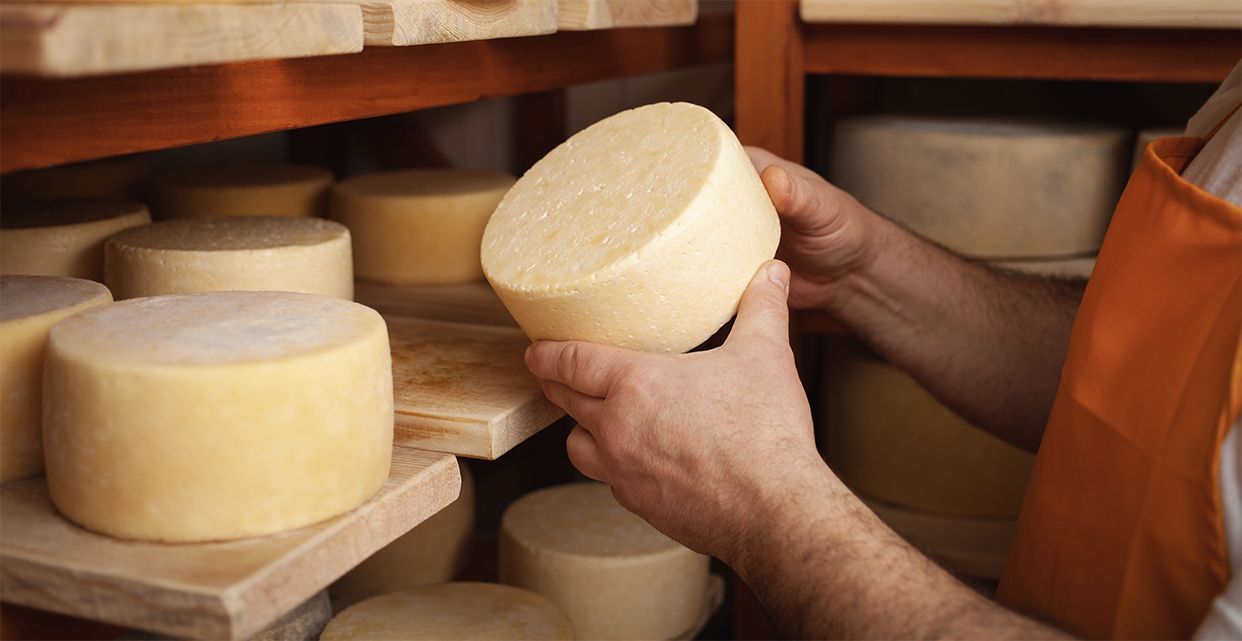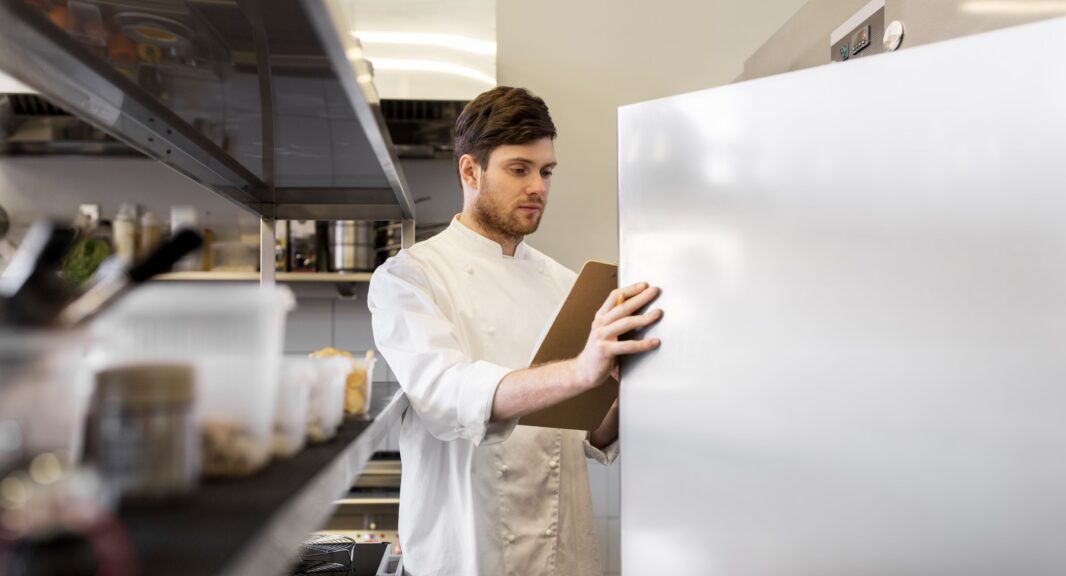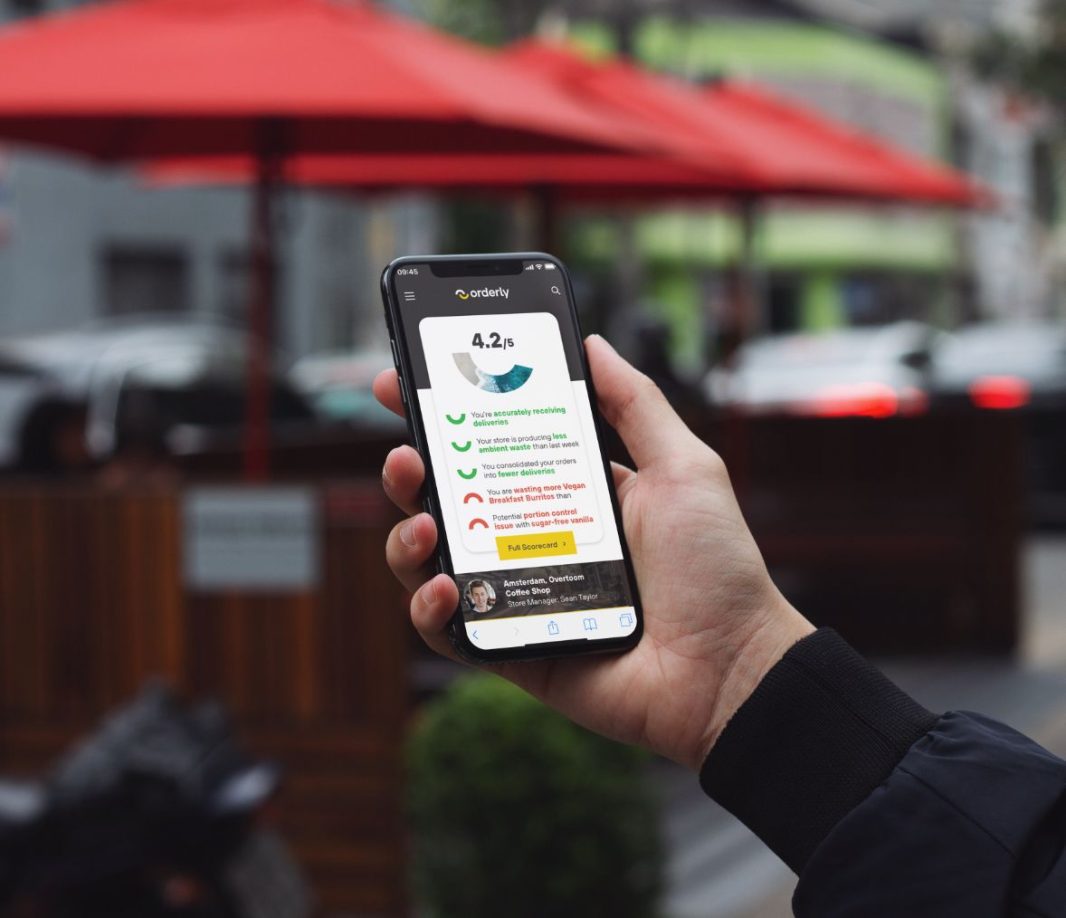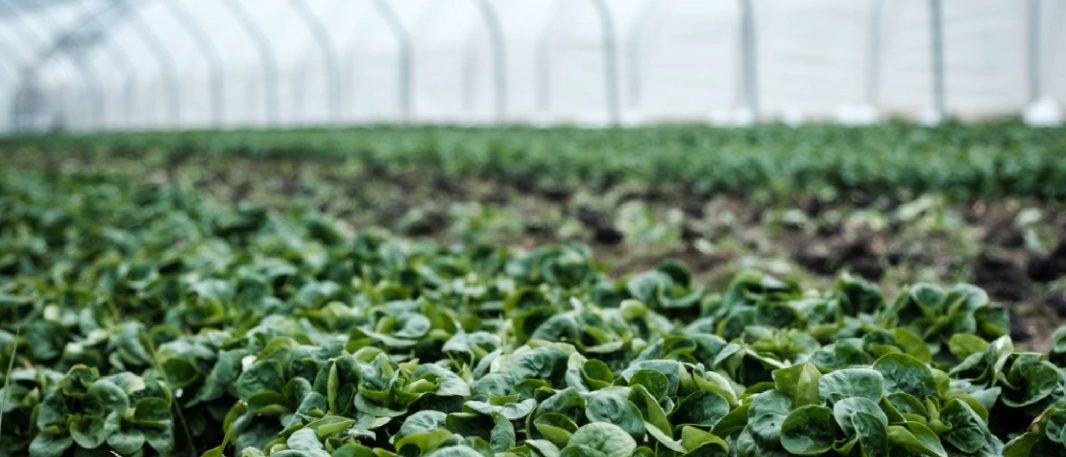When we saw the news of a cheese with an edible chip, our lunch took a funny turn – though we are all for tech and transparency, we are naturally a little dubious of the merits of tracking a food’s journey past the oesophagus.
Yet, as reported in Direct Industry, the Consorzio del Formaggio Parmigiano Reggiano’s business in Italy has recently started embedding edible microchips in cheese wheels. Chicago-based ‘p-Chip’ makes theses tiny little chips, and uses blockchain technology to authenticate data that can trace the cheese as far back as the producer of the milk used.
For them, it’s all about tracing the cheese to ensure its authenticity. Like champagne, the name parmesan doesn’t apply to all cheeses. The brand has a Protected Designation of Origin (PDO, which is how Parmigiano can be officially sold and marketed as “parmesan” in Europe.
How it works
We delved in, intrigued.
“The chip, as small as a grain of salt and activated by light, is placed onto the external skin of the cheese wheel, near two QR codes also used for tracking. According to the chip manufacturer, the US-based p-Chip corporation, the tiny component acts as a “digital anchor” for the physical item, enabling granular and effective unit-level tracking. It works by associating a “unique and unchangeable identifier” to each wheel, thereby creating a digital twin that can be followed through the whole supply chain.”
So far, so Black Mirror. But is it okay to chow down on?
We haven’t tested one, and from what we’ve read the phrase edible chips is kind of a misnomer. As another article notes:
“In lab tests, the chips sat for three weeks in a mock-up of stomach acid without leaking any dangerous material.”
So they aren’t saying you should it eat. Or that you can eat it. But you could. Maybe. We don’t want to legally suggest that you could even here…
The biggest leap we think the technology will see? In a world of suspicion around everything from 5G to the legitimacy of the moon landings, a chip in a cheese may feel like a step too far for many. That being said, the chip creator has stated they are currently beta tested to guarantee car part authenticity and the applications seem vast, and also helpful. Supply chain knowledge is power, and that power can change everything.
Is this the future of supply chain accuracy?
An accurate supply chain and a greater understanding of your products, their journey and the potential flaws at any mile is critical for anyone in the food and beverage space, but for most of us, this might be a year 3000 solution or too unpalatable for the average consumer. Alternatively, a chip could be as ubiquitous as a bag of silica gel inside a new package. Time will tell.
The short-term future? Focus on ‘Tech for good’.
While the potential for chips has been suggested for everything from fish to parts and medicines, there’s a public awareness issue to get past. An Axios study has shown that eight years ago, technology was the leading industry in trust in 90% of the countries Edelman studies. Today, it is the most trusted in only half of countries.
At Orderly, we like to focus on the possibilities for all businesses to improve their supply chain with measurable, small activities. Orderly’s SaaS solutions increase the profitability and sustainability of thousands of enterprise food and beverage locations across the globe. Through better supply chain and store operations we can influence responsibility for profitability and sustainability.
Take a look at how we do it here.







